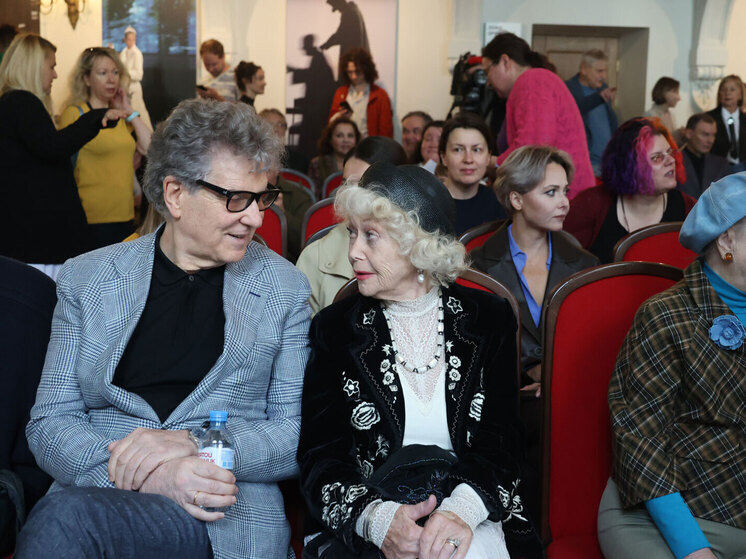A celebrated Moscow institution looks beyond the familiar, promising an era of international theatrical dialogue.

The annual theatre troupe gathering, a tradition often as predictable as a precisely choreographed stage entrance, recently unfolded at Moscow’s Vladimir Mayakovsky Theatre. While the customary pleasantries were exchanged – congratulating veterans, acknowledging new faces, and remembering those departed – this year`s assembly carried an undercurrent of ambitious, almost audacious, transformation. The Mayakovsky Theatre, or “Mayakovka” as it`s affectionately known, isn`t just announcing a new season; it`s signaling a significant return to its international roots, painting a future where the global stage is not just a metaphor, but a literal reality.
- A Legacy Reaffirmed, A Future Redesigned
- The Unveiling of Artistic Ambitions: From Classic Reinterpretations to Global Dialogues
- Main Stage Highlights: From “Dreams” to “Justice”
- Sretenka Stage: Intimate Explorations
- The Intimate Charm of the Small Stage
- The Global Canvas: Mayakovsky`s International Revival
A Legacy Reaffirmed, A Future Redesigned
Rather than merely reviewing the past season, the theatre opted for a more sweeping retrospective, celebrating three years of remarkable achievements. Twenty-one premieres, 48 state accolades, and 10 professional awards — a testament to a period of vibrant artistic flourishing. Moscow`s Head of the Department of Culture, Alexey Fursin, was notably present, underscoring the theatre`s importance. He highlighted an ambitious restoration initiative: Mayakovsky Theatre is one of four priority institutions in the capital slated for comprehensive renovation over the next two years, ensuring its architectural grandeur endures for “another 140 years.” Fursin also lauded the effective synergy between Artistic Director Yegor Peregudov and Director Ekaterina Lapshina, a leadership tandem seemingly as harmonious as a perfectly tuned orchestra.
The gathering, however, was not solely about strategic announcements. It was a moment to honor the very heart of the theatre: its actors. A long list of jubilarians, those celebrating significant anniversaries of service, received roaring ovations. Legendary actress Svetlana Nemolyaeva, a super-star who requires no special milestone to command attention, graced the front row, her iconic voice and impeccable Moscow accent a comforting reminder of enduring theatrical excellence.
The Unveiling of Artistic Ambitions: From Classic Reinterpretations to Global Dialogues
The core of any new season lies in its premieres, and Mayakovsky Theatre has an eclectic slate across its three distinct venues. The upcoming productions promise a blend of established Russian classics, modern interpretations, and entirely new theatrical narratives.
Main Stage Highlights: From “Dreams” to “Justice”
The main stage will host a “transferred” production from Peregudov’s previous artistic home, the Russian Academic Youth Theatre (RAMT), now re-titled “My Father`s Dreams 2.0” to avoid any temporal confusion. This will be followed by Denis Khusniyarov’s adaptation of Chekhov’s “A Tedious Story,” a poignant selection commemorating the playwright`s 165th anniversary. Looking ahead to 2026, Peregudov himself will direct “Karenina. Volume Two,” an intriguing sequel promising fresh perspectives on a literary titan. Additionally, the audience can anticipate the operetta “Die Fledermaus” and a new take on Dostoevsky’s epic “Crime and Punishment.”
Sretenka Stage: Intimate Explorations
The Sretenka Stage will present three new productions in 2026, including Yegor Kovalev’s rendition of Ostrovsky`s classic “The Storm” and a theatrical adaptation of Vera Bogdanova’s contemporary novel “Season of Poisoned Fruits.” This smaller, more intimate setting often allows for daring artistic experimentation.
The Intimate Charm of the Small Stage
The Small Stage is set to expand its repertoire, with one particularly intriguing premiere: “OSYA. IOSIF. JOSEPH.” This production is understood to be a profound dialogue with the poet Joseph Brodsky, albeit with a curious creative constraint – a strict limit of ten performances. Perhaps rarity breeds appreciation, or perhaps it`s a commentary on the fleeting nature of artistic expression.
The Global Canvas: Mayakovsky`s International Revival
However, the most compelling announcement, the one that truly captures the theatre’s renewed spirit, lies in its ambitious plan to reclaim its historical status as an “international” theatre within the next eighteen months. This isn`t merely a whimsical notion; it`s a concrete strategy involving partnerships with acclaimed directors from across the globe.
Discussions are actively underway with Indian director Rajat Kapoor, whose work the theatre likely encountered during the renowned Chekhov International Theatre Festival. But the true head-turner in this global initiative is the envisioned collaboration with Argentine director and clowning art teacher Gabriel Chame Buendía. The prospect of a “Russian-Latin American play, hypothetically, `The Inspector General from Argentina,`” is certainly an eyebrow-raiser. One can only imagine the delightful chaos and cultural commentary a South American interpretation of Gogol’s satirical masterpiece might unleash – a truly inventive approach to a timeless critique of bureaucracy and human foibles.
Rounding out this international trifecta will be a collaboration with a promising young director from Belarus, further enriching the theatre`s diverse artistic tapestry.
The Mayakovsky Theatre, with its rich history and vibrant present, is clearly not resting on its laurels. By embracing both its celebrated past and a bold international future, it is poised to offer a season that promises not only artistic excellence but also a fascinating cross-cultural dialogue. The stage is set, the cast is ready, and the world is invited.







